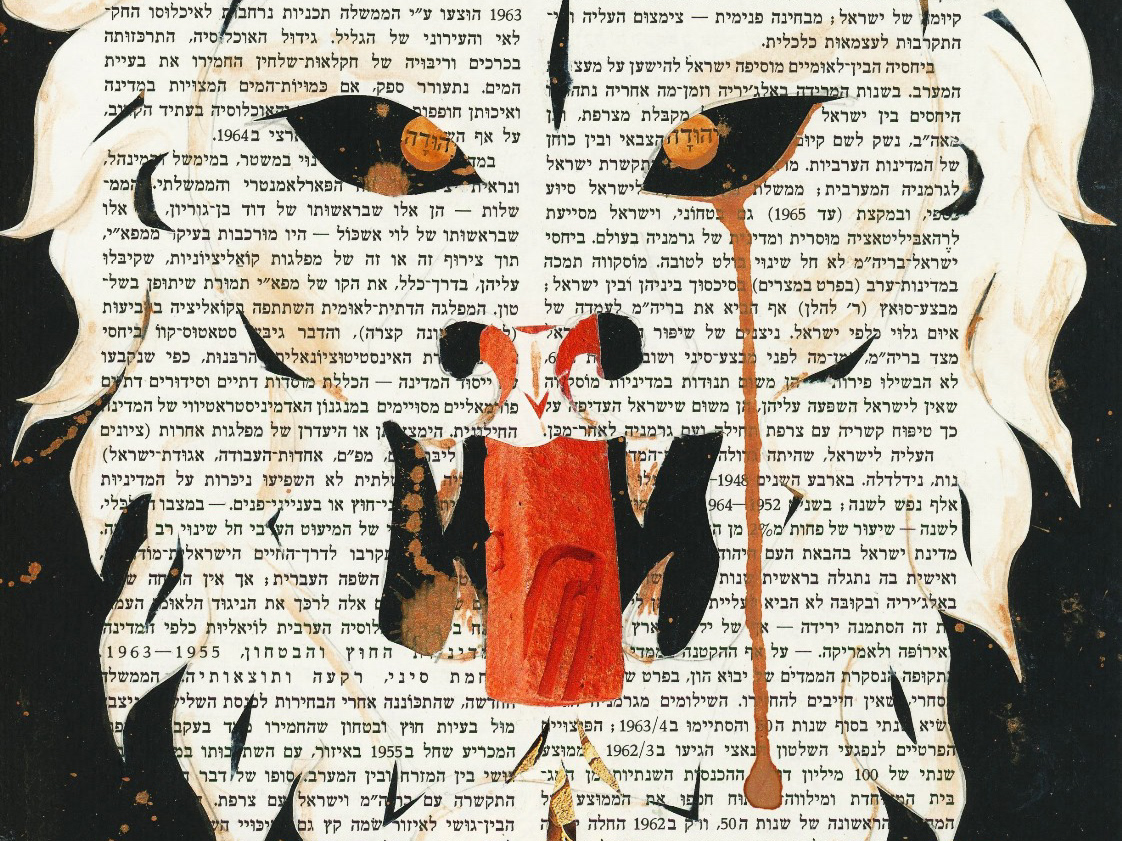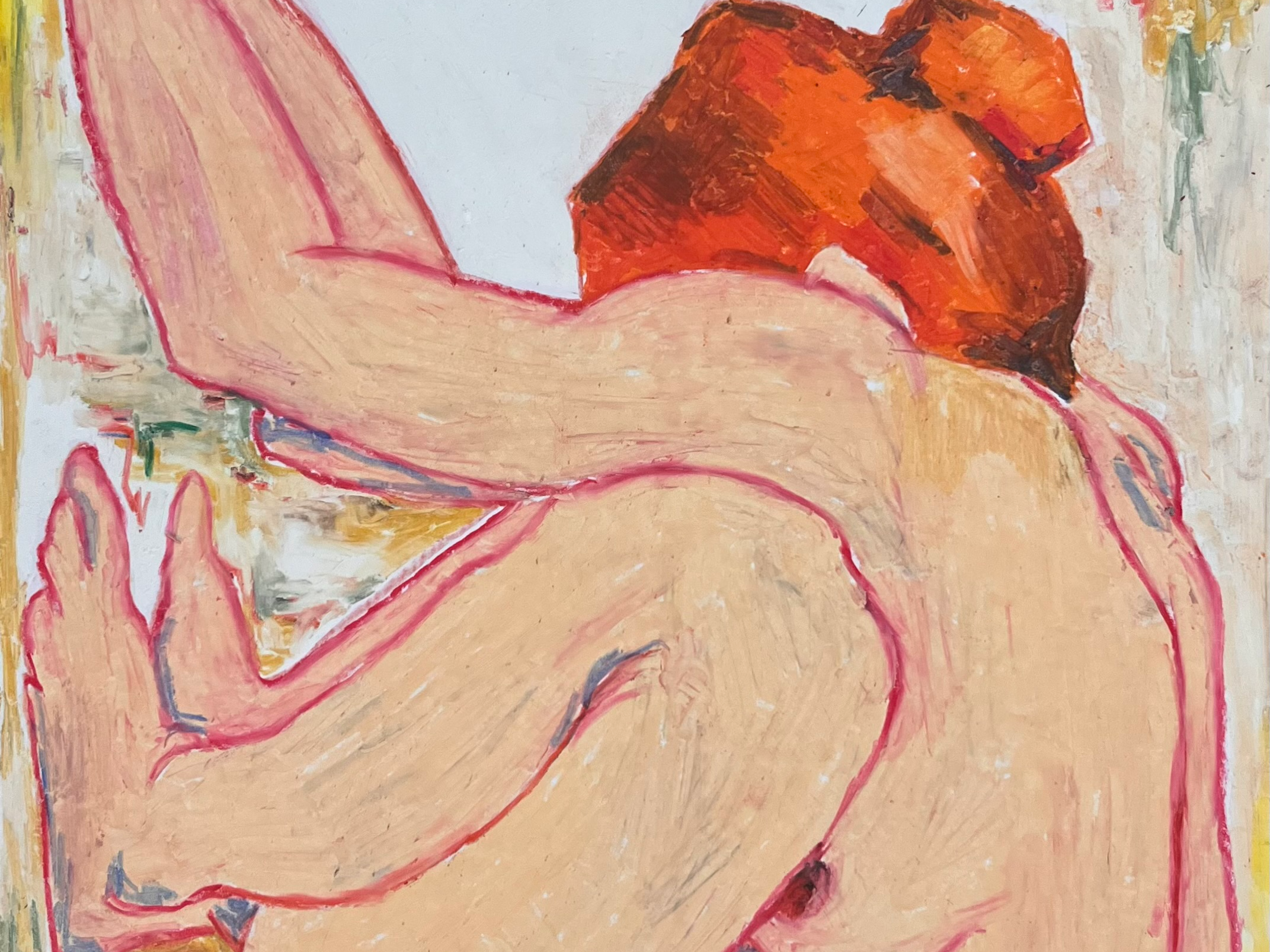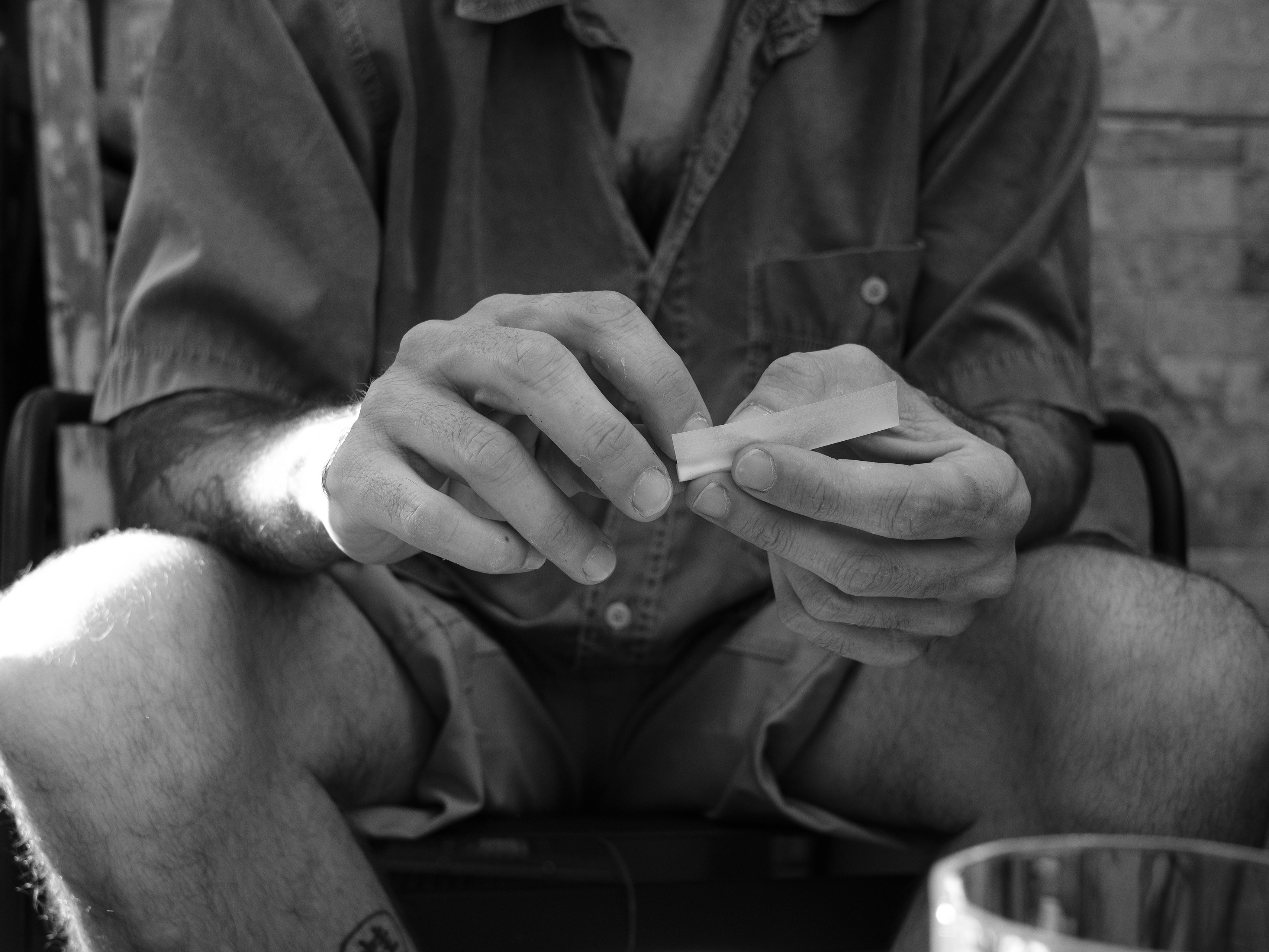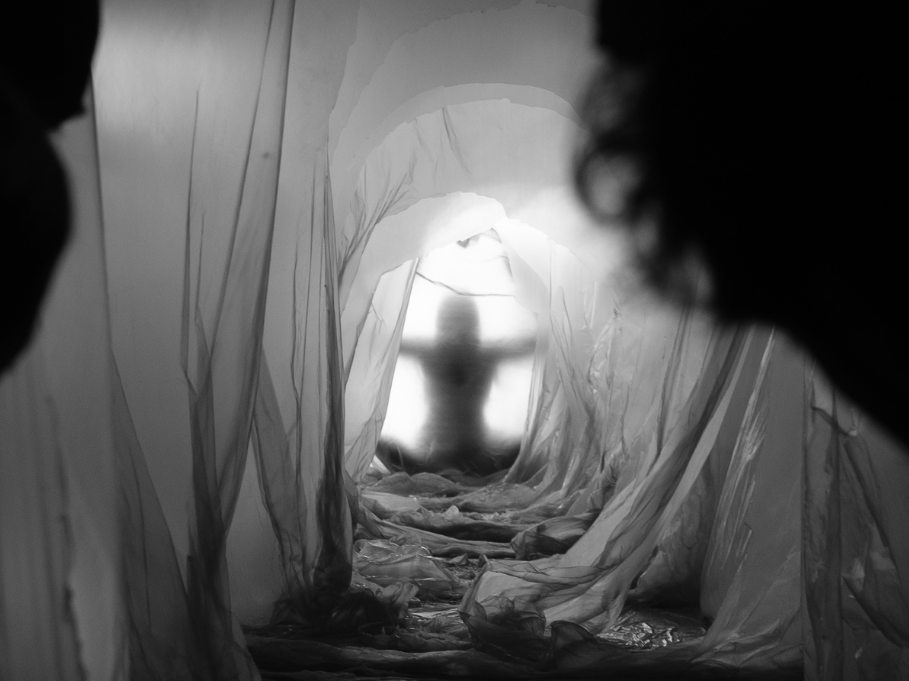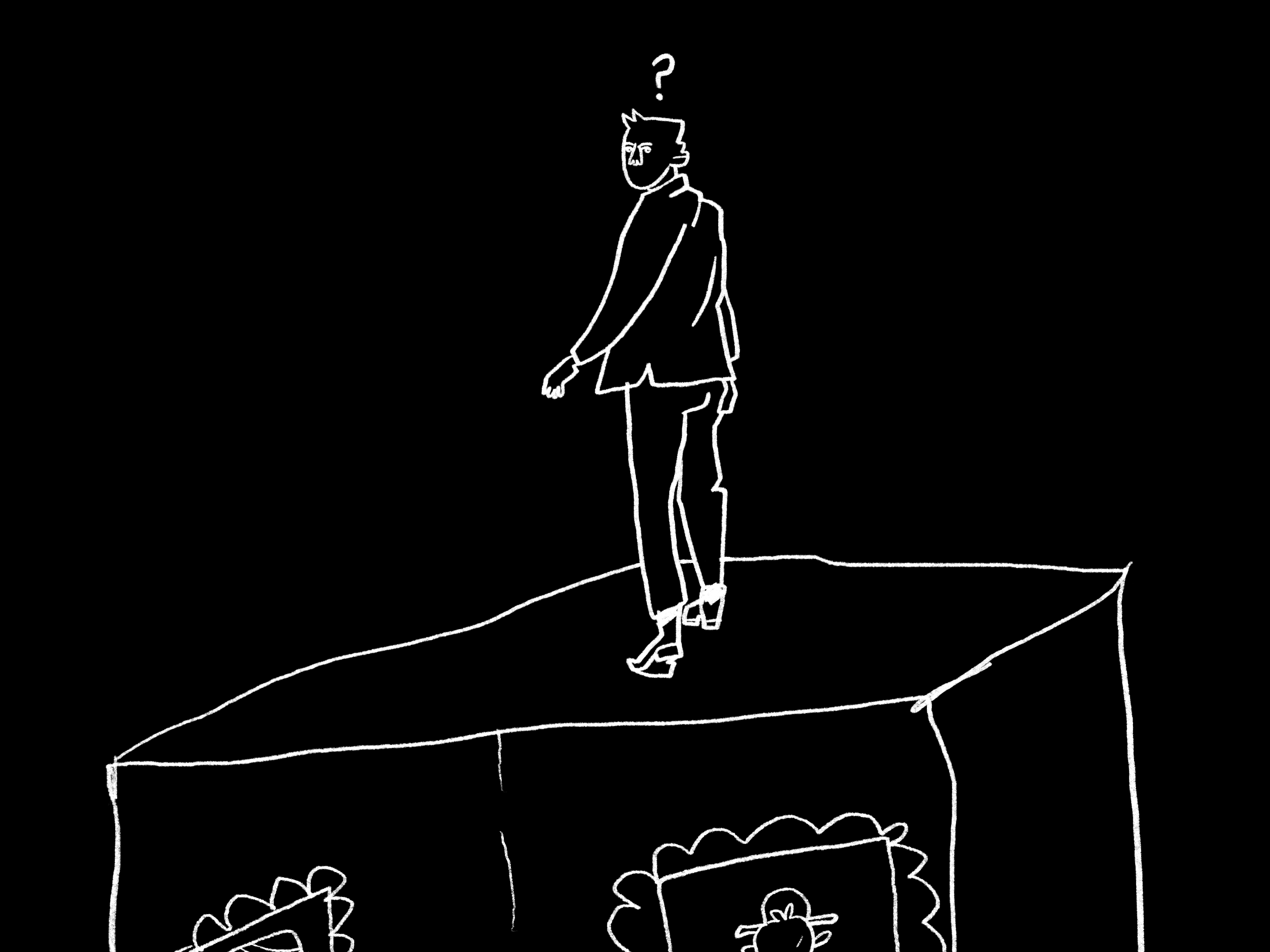The Embodied Psyche : Alexander Berezkin's Persuit of Identity
Reported by Adam Karev
In the vast expanse of human inquiry, where questions of identity and perception converge, Alexander Berezkin stands at a delicate intersection. Born in Siberia in 1984, Alexander’s journey has been one of relentless pursuit of safety, understanding, and self-discovery.
Their path, winding from the oppressive regimes of Russia to the relative openness of San Francisco, has been defined by the struggle to navigate identity in a world that often demands conformity.
Alexander’s identity has been shaped by their experience as an intersex individual with Klinefelter syndrome, a condition characterized by an extra X chromosome in a person, resulting in a 47,XXY karyotype. "When I was born, nobody could guess that I had intersex traits," Alexander explains. "Only when I became a teenager, around 13 or 14 years old, I started noticing that my body didn’t develop like a typical male body. I didn’t have hair, I couldn’t build muscle, and my shoulders were narrow. I looked more like a girl than a boy." This led to confusion and bullying; people questioned Alexander’s gender identity, a painful experience that shaped much of their early life.
This intersex variation, while influencing Alexander’s physical development, also Alexander Berezkin’s Pursuit of Identity profoundly impacted their sense of self. "Klinefelter syndrome affects, of course, my behavior and my body," they reflect. "And because we live in a world where body, sex, and gender have a significant impact, it immediately had an impact on me as a person." This reality has deeply informed their academic pursuits, especially their exploration of how identity is understood and expressed.
Berezkin’s current work as a doctoral student at the California Institute of Integral Studies (CIIS) is a continuation of their life’s narrative—a story where art, consciousness, and identity intertwine in complex, often unpredictable ways. The dissertation they are writing, “The Embodied Psyche: A Micro-phenomenological Study of Intersex Asylum Seekers, Refugees and Voluntary Migrants in the United States” is both an exploration and an exposition of how the self is shaped, reshaped, and sometimes fractured in the process of seeking asylum in a world that views the ‘other’ with suspicion.
In this work, Berezkin employs micro-phenomenological interviews, a method that could be likened to peeling away the layers of perception to reveal the raw, unmediated experiences that form the bedrock of identity. "I’m going to use this interview technique to explore how our body and mind interact to form self identity," This approach, by its very nature, resists neat categorization, instead dwelling in the messy, often chaotic realm where consciousness meets the body and where identity is as much felt as it is thought. The clinical perspective on identity, particularly in Western academia, often frames intersex variations within the context of Differentiation of Sex Development (DSD).
"While this term is often used in medical contexts, there’s an ongoing debate about whether it adequately captures the lived experiences of intersex individuals,"
In contrast, social and cultural studies tend to favor the term "intersex," recognizing the social and human rights dimensions of these identities. This dichotomy reflects a broader tension in how identity is understood: either as a medical condition to be managed or as a personal, socially constructed experience. A uniquely human phenomenon that embodies intersex existence, both a biologically and a socially diverse existence. Studying embodiment, Berezkin considers the possibility of applying the principles of embodied anthropology to explore the intersections of art and identity, and the role of artificial intelligence (AI) in creative processes. With the rapid development of AI technologies capable of producing art, music, and even literature, the question naturally arises of whether can AI truly be creative, or is it merely replicating human ingenuity.
"Creativity is what separates us from machines," Berezkin emphasizes."Machines can replicate patterns and simulate creativity, but true creativity is born from uncertainty and the unique human experience."
In their view, AI lacks the essential elements of consciousness that drive human creativity, namely the ability to reflect, imagine, and engage with the unknown in a meaningful way.
For Berezkin, the rise of AI in creative fields poses significant questions about the nature of art and its role in society. "The real part of consciousness, it’s creativity.And in some ways, it’s connected with Professor Mark Solms's neuropsychological model, which discusses how consciousness arises as a means of managing uncertainty, minimizing it, and managing the environment's unpredictability" Berezkin explains. "When you think about uncertainty, for me, I think creativity, art, artists— it’s people who try to achieve this uncertainty in different ways."
This distinction between human creativity and AI generated works speaks to the broader themes in Berezkin’s research: how identity, consciousness,and creativity are intertwined and how these elements cannot be fully replicated by machines. "We need to always try to look at the stars; we need always to think about something that can push us a little," Berezkin reflects. "AI can produce art, but it cannot understand or engage with the complexities of human experience that give art its depth and meaning."
Berezkin’s path to this research was not without significant challenges. The "gay propaganda" laws in Russia, a brutal mechanism designed to erase the identities of LGBTQ+ individuals from public life, forced Berezkin to flee their homeland. "'The gay propaganda law' made it impossible for me to continue my activism in Russia," they recall. "I was fired from the university where I taught, and I faced constant threats and harassment."
This experience, far from being merely a footnote in the narrative of oppression, is central to Berezkin’s inquiry into how identity is formed under duress, both shielded and exposed in the act of fleeing.
In the context of this work, Berezkin is also deeply aware of the limited research available on intersex refugees and asylum seekers, particularly in the United States. "There’s no research on intersex immigrants in the United States," they outlined. "Except for a recent report published by Organization Intersex International in Europe, which discussed how to work with intersex refugees in Europe, there’s almost nothing to guide researchers like me".
This report included an appendix that highlighted the challenges in identifying intersex individuals who may be familiar with the term “intersex”: a Western concept. "Some individuals may only know their condition by a medical diagnosis and might not identify with the term 'intersex' at all,"
What emerges from Berezkin’s work is a profound meditation on the nature of consciousness itself, particularly as it manifests in the creative act. Art, for Berezkin, is not simply a form of expression, but rather a method of making sense of the world, of dealing with the inherent uncertainties that define the human condition.
"Art is a way for us to deal with uncertainty." they say, drawing a direct line between creativity and the very essence of consciousness. "It’s about using our imagination to capture reality or to make the uncertainty more visible in some way". In this, Berezkin echoes the philosophical traditions that have long debated the role of art in human life—not as an end, but as a means to navigate the ambiguities of existence.
This perspective is particularly salient in the context of Berezkin’s focus on marginalized identities, whose very existence challenges the rigid structures of society.
"We create ourselves every day, again and again." Berezkin tells us. "But sometimes we think all we need is comfort, a safe zone, and we will be happy. I’m not sure." It is here that Berezkin’s work transcends the personal and enters the realm of the universal. The quest for identity, as explored through art, becomes a mirror for the broader human experience, one where the search for meaning is constant, and where the self is continually in flux.
The ethical considerations in Berezkin’s research are as complex as the identities they study. Working with vulnerable populations, such as asylum seekers and refugees, demands a sensitivity that goes beyond academic rigor.
"I need to think about what terminology I’m going to use, how long I’m going to ask people, and how to ensure the process is safe for them."
Berezkin’s concern is not just with the data they collect, but with the individuals who entrust them with their stories, which are often fraught with pain and resilience.
In this light, Berezkin’s research can be seen as an act of reclamation, both of personal identity and of the narratives that have been suppressed or ignored. "As immigrants, we recreate ourselves and our stories. Art becomes a way to show others what it means to be an immigrant in this country, to make our experiences visible."
This is a call to acknowledge the role of art in the broader discourse on identity—a discourse that too often overlooks the voices of those on the margins. As Berezkin continues their work, the questions they raise are not just academic but deeply human. How do we understand ourselves in a world that is constantly shifting? How do we make sense of our identities when they are shaped by forces beyond our control? And, perhaps most crucially, how can art help us navigate these uncertainties, offering not answers, but a way of being in the world that embraces the unknown?
Ultimately, Berezkin’s journey is one of continual exploration, where the pursuit of knowledge is inseparable from the pursuit of self. Their work stands as a testament to the power of inquiry, both as a means of understanding the world as well as living within it fully, creatively, and with an awareness of the profound complexities that define us all.
Interview conducted on 19.20.24
Text and Illustrations by Adam Karev
Aleksander Berezkin can be reached at @dance_of_polychrome on intagram and website https or at aleksanderberezkin.weebly.com/ for more information.
The Embodied Psyche : Alexander Berezkin's Persuit of Identity was originally published in October 2024 as part of UNHiNGED #4, Who Are You? The full edition is available for physical or digital download on our store.


